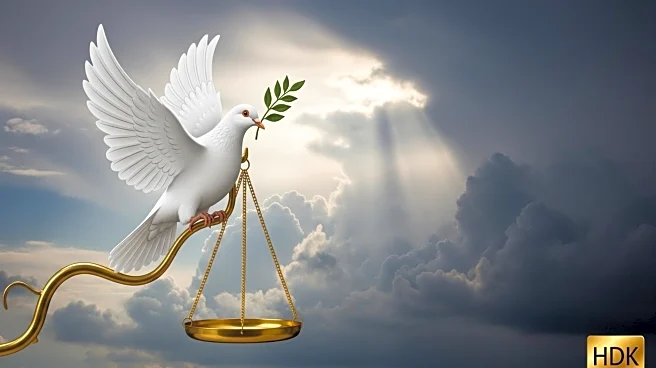What is the story about?
What's Happening?
President Trump has unveiled a peace plan aimed at ending the ongoing conflict in Gaza. The plan includes a cease-fire, the return of hostages, and a Gaza free of Israeli occupation and Hamas governance. The plan has received praise from several Arab nations, including Egypt, Jordan, and Qatar. However, it faces significant challenges, including opposition from Hamas and criticism from some Israeli government extremists. The plan's success depends on the cooperation of multiple stakeholders, including the Trump administration and leading Arab governments.
Why It's Important?
The peace plan represents a significant diplomatic effort to resolve the long-standing conflict in Gaza. Its success could lead to a reduction in violence and a more stable region. However, the plan's implementation faces numerous obstacles, including political opposition and the need for sustained international pressure. The outcome of this initiative could have far-reaching implications for U.S. foreign policy, regional stability, and the future of Israeli-Palestinian relations. The plan's reception and execution will be closely watched by global stakeholders.
What's Next?
The next steps involve diplomatic negotiations and efforts to gain broader acceptance of the plan. President Trump and his administration will need to engage with both Israeli and Palestinian leaders to address concerns and build consensus. The international community, particularly Arab nations, may play a crucial role in facilitating dialogue and encouraging compromise. The plan's progress will likely be influenced by geopolitical dynamics and domestic political considerations in the U.S. and the Middle East.















